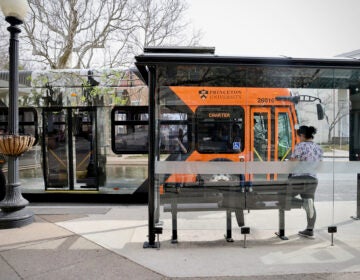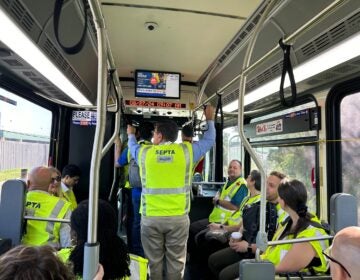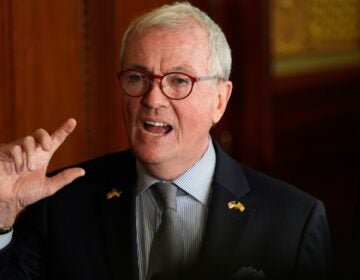Schools in Pa. and N.J. are getting money for electric school buses
Electric buses don’t release tailpipe pollution, so they’re better for the climate and healthier for kids.
Listen 1:14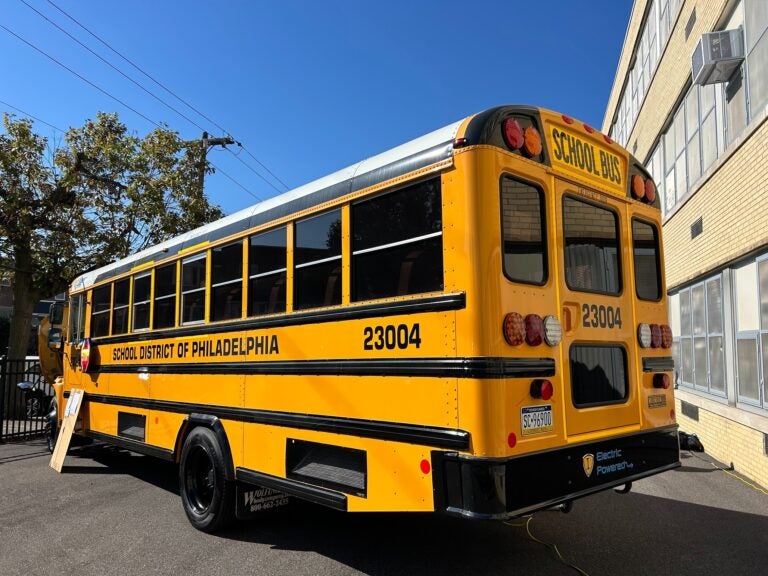
An electric school bus parked at Lamberton Elementary in West Philadelphia. (Sophia Schmidt/WHYY)
This story is part of the WHYY News Climate Desk, bringing you news and solutions for our changing region.
From the Poconos to the Jersey Shore to the mouth of the Delaware Bay, what do you want to know about climate change? What would you like us to cover? Get in touch.
Some students in Philadelphia and New Jersey will soon breathe easier on their way to school.
On Wednesday, the Environmental Protection Agency announced the School District of Philadelphia is getting nearly $17 million in federal grant and rebate funding to buy electric school buses. And the state of New Jersey is distributing $15 million to help schools replace their dirty diesel school buses with electric vehicles.
“I’m just really excited,” said Rob Connor, head of school at Christina Seix Academy outside of Trenton, New Jersey. The private pre-K through 8th grade school received a grant from the state to replace two of its seven diesel buses with electric buses and install two charging stations.
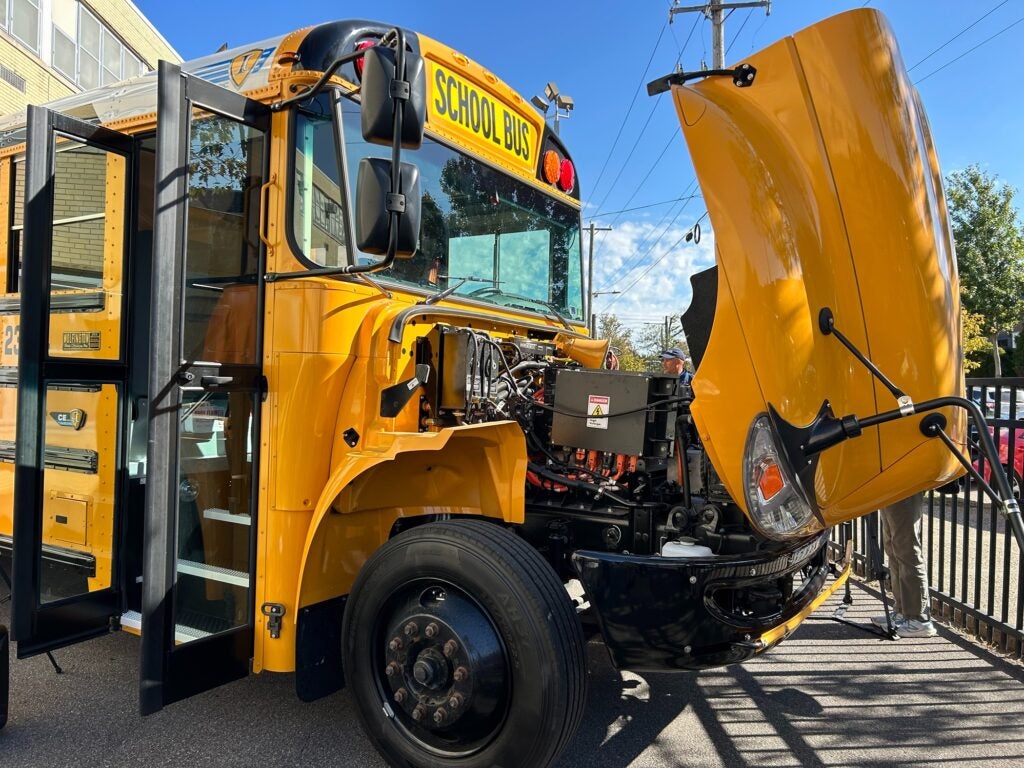
“We are a place that believes in environmental justice, and we want to not just teach our kids, but we want to act on our values,” Connor added.
The 2021 Bipartisan Infrastructure Law put $5 billion toward grants and rebates for school districts to purchase electric school buses. This spring, 11 New Jersey districts got federal rebates to purchase close to 70 electric buses. The School District of Philadelphia’s $7.9 million federal grant and $8.9 million rebate will pay for a total of 45 buses, the EPA said.
The separate New Jersey state grants announced last week will cover 48 buses and charging infrastructure at 14 schools and districts in New Jersey. They’re the first round from the state’s electric school bus grant program, created in 2022, which will distribute up to $45 million over three years.
The new buses will be a tiny drop in the bucket. Currently, more than 99% of the 21,700 school buses registered in New Jersey run on fossil fuels, according to the state. As of June, there were around two dozen electric school buses operating in the state.
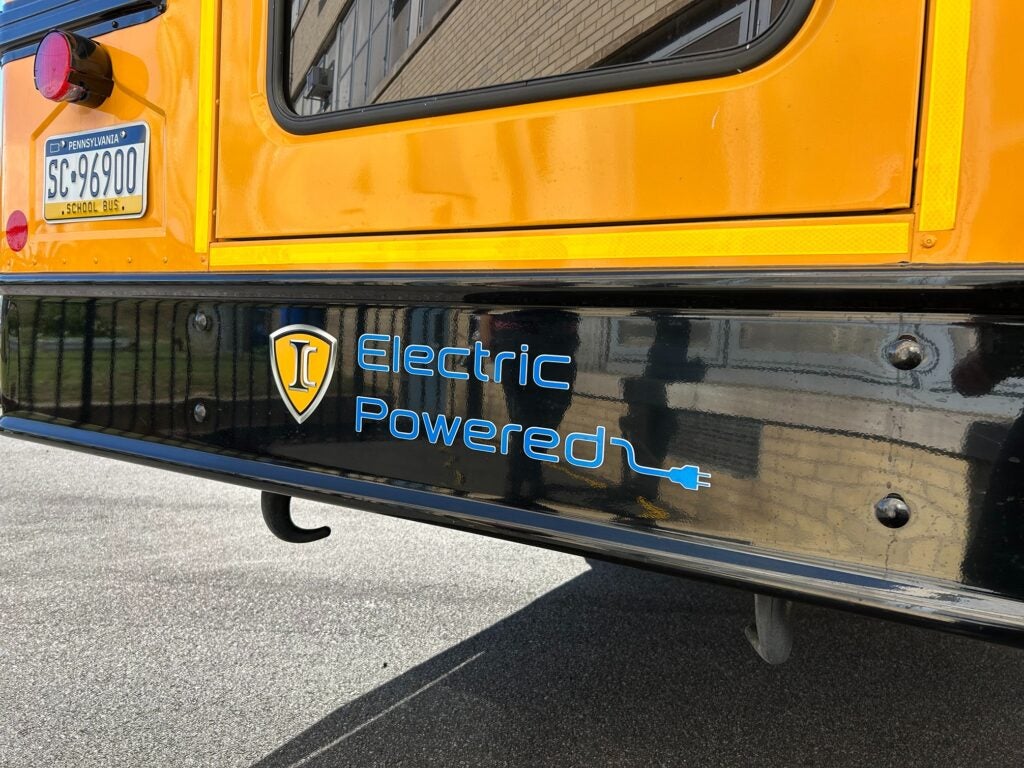
Similarly, the School District of Philadelphia owns over 300 school buses, and currently, 20 of them are electric, according to district officials. The district bought its first electric buses in 2021, when it set a goal of replacing 4% of its diesel buses with electric each year, eventually owning a larger fleet that’s 20% electric. The district also contracts with bus companies that transport students to school.
One goal of bus electrification is to reduce schools’ contribution to climate change.
Transportation releases more than a third of New Jersey’s total emissions of planet-warming greenhouse gasses, according to the New Jersey Department of Environmental Protection. While electric buses release no pollution from tailpipes, the electricity needed to power them can contribute to climate change if it’s made using fossil fuels.
A more immediate goal of school bus electrification is to make getting to school a healthier experience for kids. Diesel exhaust contains toxic chemicals and tiny particles that can worsen lung conditions, cause asthma attacks and even exacerbate heart problems.
“In Philadelphia, kids have three times greater asthma rates than the rest of the country,” said EPA Regional Administrator Adam Ortiz. “So that is an immediate health impact that we’re going to make by putting these buses on the street.”
Ortiz visited Lamberton Elementary school in West Philadelphia Wednesday to announce the funding, and said he visited classrooms where up to 80% of children raised their hands when asked how many of them have asthma.
Lamberton Principal Andrea Surratt said because of this, the school is excited to be on an electric school bus route.
“The clean school bus program is poised to have a direct impact on the climate, and by extension, the physical health and safety of our young people,” she said.
In New Jersey, state public health surveys have shown close to half of children with asthma who attend school have missed school due to the condition.
“Children, whose lungs are still developing, are most vulnerable to the harmful health effects of poor air quality, yet millions of them are transported to and from school every day in buses that release harmful diesel emissions,” said New Jersey Department of Environmental Protection Commissioner Shawn LaTourette in a written statement. “It is critical that our school buses be equipped with the latest technology to protect them.”
Connor, of Christina Seix Academy, also sees the electric buses as a teaching opportunity.
“Hopefully we can have someone come out and talk about how they work, talk about how the charging system works, and talk about how the skills that people need to have to service those buses are evolving as well,” he said.
And Connor expects they’ll bring the school savings on maintenance and fueling costs.
“Every year we spend upwards of well over $100,000 to support our transportation system, and so we expect those costs to come down,” he said.

Get daily updates from WHYY News!
WHYY is your source for fact-based, in-depth journalism and information. As a nonprofit organization, we rely on financial support from readers like you. Please give today.



